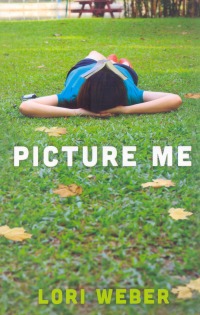| ________________
CM . . .
. Volume XX Number 9. . . .November 1, 2013
excerpt:
Thirteen-year-old Krista has been bullied throughout her school career, most often by “popular girls” like Chelsea. Her loyal friend Tessa watches and tries to support her. Following an unfortunate reading during English class, Krista in named The Goodyear Barbie, and her unflattering picture is plastered on her locker. This incident becomes the breaking point for both Krista and Tessa. Tessa fights back, earning her a suspension and turning the attention of the bully on to her. Krista retreats into herself and turns to illegal diet pills to numb the pain and in an attempt to rid herself of the fat that makes her a victim. Meanwhile, Chelsea, the bully, finds herself becoming more and more controlled by her older boyfriend as she searches for somewhere to belong. The format of Picture Me is designed to let the reader hear all three voices: the bully, the bullied, and the bystander. In alternating chapters, Krista, Tessa, and Chelsea all tell the story from their own point of view. While this is an intriguing concept, it becomes difficult for Weber to give each story the time it needs in the 157-page text. The complexity of motive and backstory that led all three girls to this critical incident means that Weber can only scrape the surface of each perspective, and the reader is left with many more questions than answers. Weber begins to delve into each of the girl’s lives. Krista’s mother works long hours, and Krista and her father bond over fast food. Tessa’s father was killed in an IED attack in Afghanistan leaving Tessa, her mother, and younger sister to scrape out a living in a housing project. Chelsea lives with her distant mother who is estranged from her two older sons and has little time or energy to invest in Chelsea. There is a lot going on in this book. Each of these stories could be developed into a book. Trying to address them all in this text doesn’t do any of them full justice. While I accept that these stories are told from the perspective of 13-year-old girls, it is still difficult to accept the impotence of the adults in this book. The teachers are so unaware that they actually trigger the catalyst event. For what reason would a teacher have the overweight girl read aloud the final stanza to a poem that deals with body image? And then, when Krista fails to return to school, readers are led to believe that the teachers try to forget that she ever existed as a way to make things easier for them. In addition, the parents of all three girls require more parenting than they, themselves, are able to give. The only show of strength from an adult is in the form of Tessa’s long lost Uncle Johnny, who appears and then disappears from their life, leaving behind a stolen inheritance. While the message may be that those who are bullied do not seek help from adults, it is a troubling message that perpetuates the idea that those who are bullied cannot turn to adults to help them. While the story was readable and the format intriguing, Picture Me struggles to give a serious issue such as bullying the depth that it may require. I didn’t not like the book, but it did worry me. Bullying is a complex issue, and Weber was admirable to try to address that complexity. More time and space would have given the stories more opportunity to be told with justice. Recommended with reservations. Karen Boyd is a doctoral candidate in language and literacy and an instructor in the Bachelor of Education program at the University of Manitoba.
To comment
on this title or this review, send mail to cm@umanitoba.ca.
Copyright © the Manitoba Library Association. Reproduction for personal
use is permitted only if this copyright notice is maintained. Any
other reproduction is prohibited without permission.
NEXT REVIEW |
TABLE OF CONTENTS FOR THIS ISSUE
- November 1, 2013.
AUTHORS |
TITLES |
MEDIA REVIEWS |
PROFILES |
BACK ISSUES |
SEARCH |
CMARCHIVE |
HOME |
